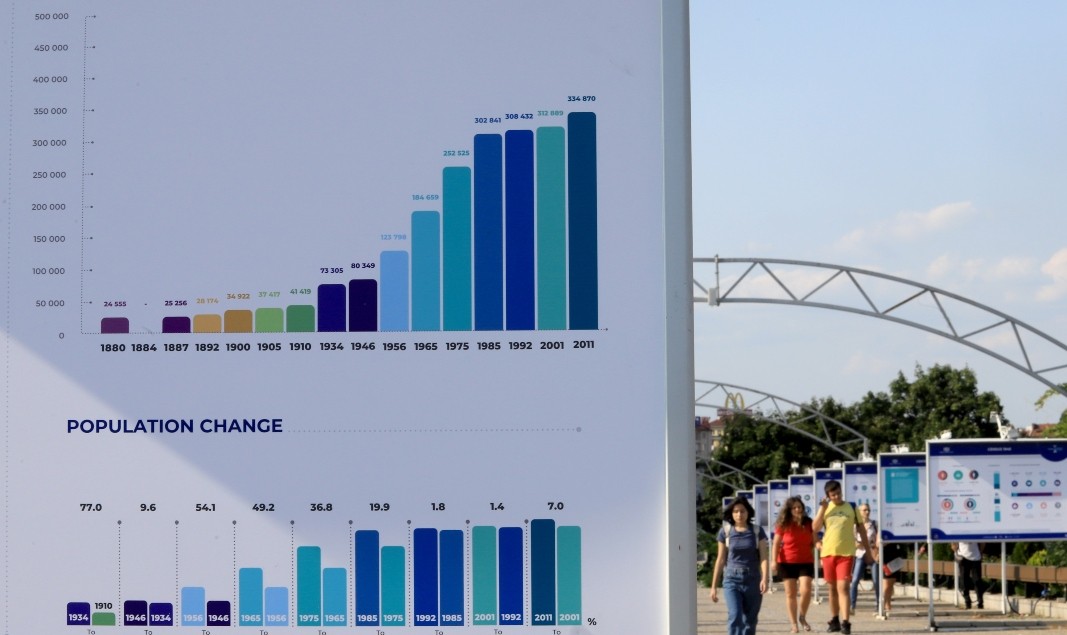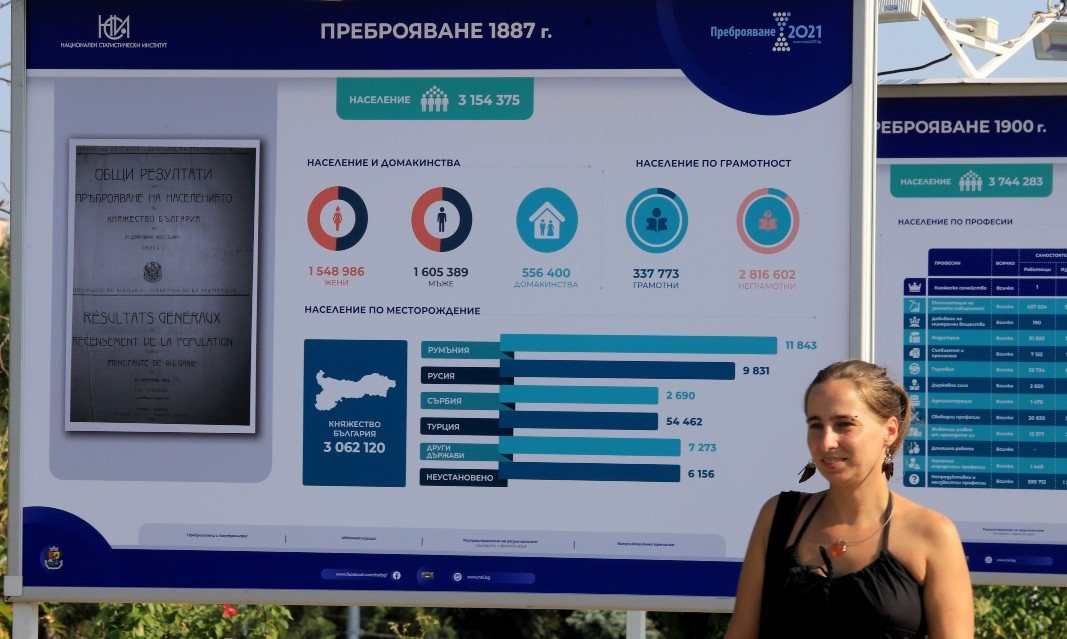The official population census was launched at midnight and will continue until 3 October. During the first 10 days it will be in the form of internet self-response, after which it will continue in its classical mode – 27,000 census takers will begin door-to-door visits. This will take place in the period from 18 September until 3 October, from 8 AM until 8 PM. A designated medical protocol has been developed for the purpose.
Members of the public will be answering 70 questions but the form is easy and quick to complete, National Statistical Institute officials say, and add that they are hoping people will take an active part in the first, electronic stage of the census. 42% of all citizens did so during the previous population census in Bulgaria which took place 10 years ago.

All people on the territory of Bulgaria, or who usually reside here, whether Bulgarian or foreign citizens, are subject to the census, explains Diana Yancheva, Deputy President of the National Statistical Institute. This includes asylum-seekers and people who have been granted status under the Law on Asylum and Refugees.
As to Bulgarians who are outside the bounds of the country as of 7 September, it is important to know that the census will include people who are absent from the country temporarily, i.e. for a period of less than one year. Bulgarians residing abroad permanently will be subject to censuses in the countries where they live. Besides the population, the statistical count will also include all residential buildings and the homes in them, including sewerage, water supply, and the way the homes are heated. “There are questions connected with energy efficiency, and one of the new questions concerns an accessible environment,” Magdalena Kostova, Director of the “Demographic and social statistics” Directorate said for the BNR.
History
In 1880, by decree issued by Prince Alexander I of Battenberg, a statistical unit was set up at the Ministry of Finance, and its first task was to organize and carry out a population census. The first census of the population of the Principality of Bulgaria was carried out on 1 January, 1881. At the time there were 2,007,919 people living in the young Bulgarian state, the average household consisting of 6 members. In 1887, after the unification of the Principality of Bulgaria with Eastern Rumelia, the population had grown to 3,154,375 people in 556,400 households. At the time only 10% of the population of the country was literate.
The population of Bulgaria grew until 1985, despite the two world wars and the national catastrophes, the National Statistical Institute says, but never reached 9 million. The birth rate actually started to decline in the 1970s due to the country’s urbanization, to reach a low point in the 1990s. Following the democratic changes in the country of 1989, emigration started to play a significant role. During the 30 years of transition, the population of the country has gone down by 1,570,769 people.

The first population census as a EU member country was held in Bulgaria in 2011, as did the first electronic count, the self-response rate being 42%. The population then numbered 7,364,570.
The average number of household members then was 2.4. One-member households accounted for almost one-third of all households in the country.
We shall have the most accurate demographic data showing how many of us there are and the way we live after the national population census is completed. It was launched today, 7 September and will end on 3 October.
Editing Elena Karkalanova
Photos: BGNESThe Embassy of Bulgaria in the Arab Republic of Egypt and the Republic of Sudan and the management of the Bulgarian School "St. Cyril and Methodius" in Cairo invite our compatriots to the opening of the 2025/2026 academic year. The event will take..
Today, 57,000 first graders across Bulgaria walked through the school doors for the first time. More than 2,300 schools across the country opened their doors to welcome students on September 15, a BGNES reporter..
An event dedicated to the Bulgarian oil-bearing rose (rosa Damascena) will take place on September 19 in Ireland, BTA reports. Its organizer is the Embassy of Bulgaria in the country. “We are pleased to invite you to a unique journey of sound..
Today, 57,000 first graders across Bulgaria walked through the school doors for the first time. More than 2,300..
The Embassy of Bulgaria in the Arab Republic of Egypt and the Republic of Sudan and the management of the Bulgarian School "St. Cyril and Methodius" in..

+359 2 9336 661
